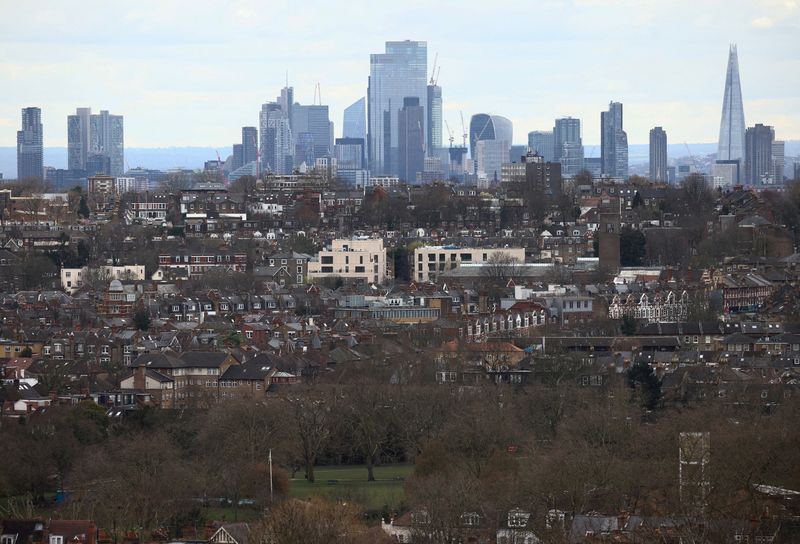LONDON (Reuters) - British households are on course to spend 3,500 pounds ($4,270) more a year in tax than they would have without the big tax increases introduced over the current parliament, a leading think tank said on Friday.
Taxes are likely to amount to 37% of national income when voters go the polls in the next election which is expected in 2024, up from around 33% in 2019 when the Conservative Party won the last election under its then leader Boris Johnson, the Institute for Fiscal Studies said.
The increase means the government run by the Conservatives, who traditionally favour low taxes, will be raising more than 100 billion pounds more each year and the tax burden will be the biggest since at least the 1950s, the independent IFS said.
"This is not, for the most part, a direct consequence of the pandemic," Ben Zaranko, a senior IFS research economist, said.
"Rather, it reflects decisions to increase government spending, in part driven by demographic change, pressures on the health service, and some unwinding of austerity."
The current parliament was likely to represent "a decisive and permanent shift to a higher-tax economy," he said.
Prime Minister Rishi Sunak and finance minister Jeremy Hunt are resisting calls from some Conservative lawmakers to cut taxes with the opposition Labour Party ahead in opinion polls.

Last week, Hunt said it was "virtually impossible" for him to cut taxes at his Autumn Statement update on the budget on Nov. 22 because of rising debt costs after the surge in inflation and higher interest rates.
($1 = 0.8197 pounds)